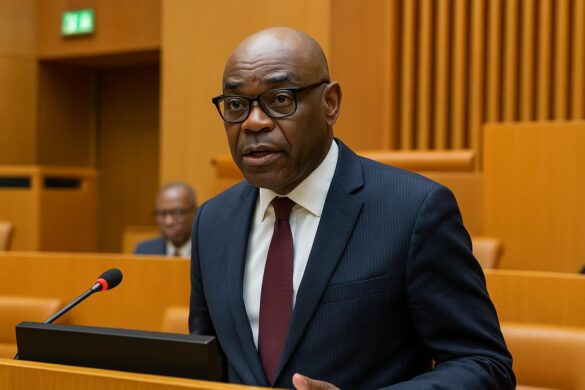Budget Discipline and Debt Reduction Strategy
The 2026 finance bill, presented before both chambers of Parliament in Brazzaville, signals the government’s intent to strengthen fiscal discipline while protecting vulnerable households from persistent price pressures and global economic uncertainty.
At the heart of the bill is a commitment to allocate all primary surpluses to debt repayment, targeting both external obligations and domestic arrears that continue to strain the liquidity of local suppliers, according to the explanatory memorandum shared with lawmakers.
Market-based bonds are considered the costliest part of the portfolio; a technical team is already engaging creditors on potential swaps or maturity extensions, confirming prior commitments made during discussions with the IMF and the CEMAC regional oversight body.
New rules cap short-term Treasury borrowing to amounts strictly necessary for covering annual amortization, reducing refinancing risk and signaling what a senior official described as “a cultural shift from crisis management to predictive budgeting.”
Household Tax Relief Measures
The most discussed measure is the upward revision of the personal income tax threshold, a move expected to exempt thousands of hairdressers, motorcycle taxi drivers, and other informal workers who currently declare minimal income but still feel the pressure of monthly deductions.
Under the proposal, incomes below the new threshold would be fully exempt, while higher brackets would become more progressive, reflecting a CEMAC directive designed to harmonize tax policy within the monetary union; Parliament’s economic committee largely welcomed this alignment.
Ministry simulations suggest approximately thirty percent of wage earners could see their net pay rise by an average of four percent, an increase economists say could boost retail turnover in marketplaces.
Implementation will not happen overnight. A transition period has been requested to finalize impact studies and modernize digital tax administration tools, noting that “a rushed rollout could generate payroll confusion and erode the trust we aim to build.”
The budget also allocates 68 billion CFA francs to social safety nets, including school meal programs and a pilot universal health coverage project in the Pool and Kouilou departments. Funding will be reallocated from savings on fuel subsidies through the gradual alignment of pump prices with import costs.
Corporate Tax Adjustments and Investment Outlook
Businesses operating in Congo-Brazzaville face a different timeline. Corporate tax amendments will take effect from January 1, 2026 without a grace period, including stricter deductions and incentives linked to local content requirements in oil services and agribusiness value chains.
The Congolese Employers Federation cautiously approved the timeline, stating clarity is preferable to prolonged uncertainty; nevertheless, several mid-sized companies hope for supplementary decrees specifying which capital expenditures will remain deductible, particularly for expansion projects.
